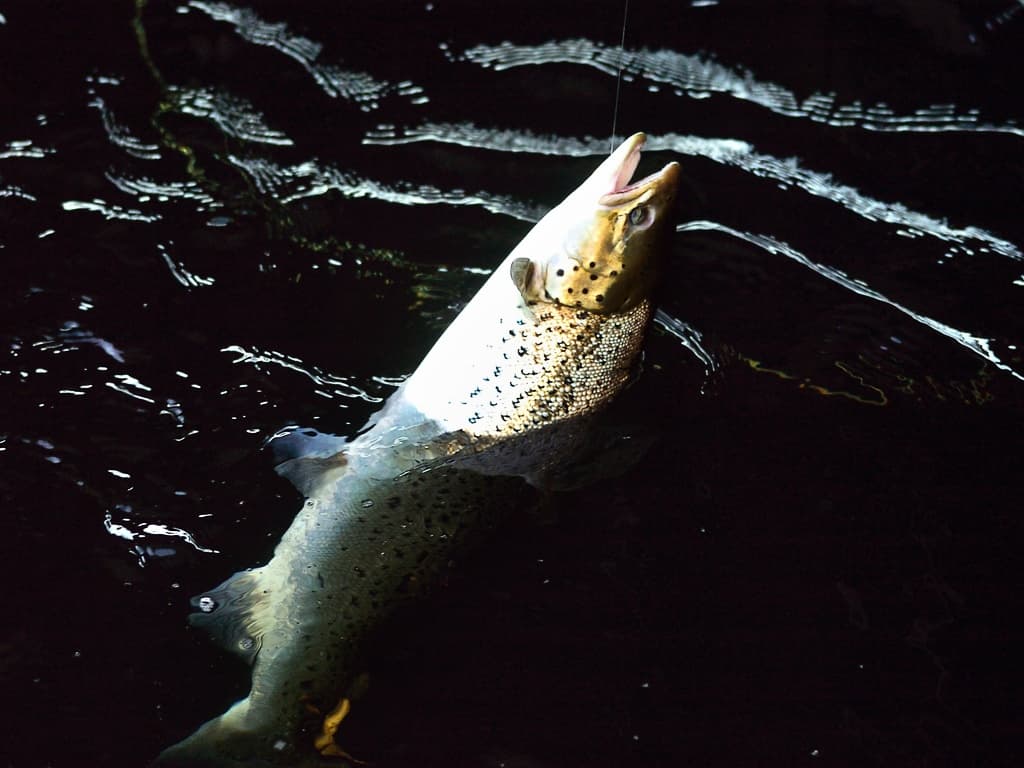Early fishing of salmon in the Baltic Sea may have a negative effect on growth and may result in fish being smaller, according to a new study conducted at the University of Helsinki.
A mapping of the genetic material of Baltic salmon shows that the larger and older salmon, some of which carry the so-called "large salmon trait", often migrate already in late spring and early summer. It is important that these powerful individuals are allowed to live on to reproduce.
"Intensive fishing in early summer can lead to salmon with the trait to grow large becoming less common, and the salmon that spawn becoming younger and smaller in size," says researcher Antti Miettinen at the University of Helsinki in a press release.
In the study, thousands of wild salmon were analyzed that were caught between 1928 and 2020. Salmon with the "large salmon trait" appeared more frequently in the catch during early summer than later in the fishing season.
"The discovery suggests that if fishing is concentrated to a specific time, it can lead to evolutionary changes in the reproductive maturity of salmon and thus affect the size of the salmon that migrate to the river and become available for fishing," explains Miettinen.
He believes it is important to take this into account when regulating fishing to preserve the viability of salmon populations.






